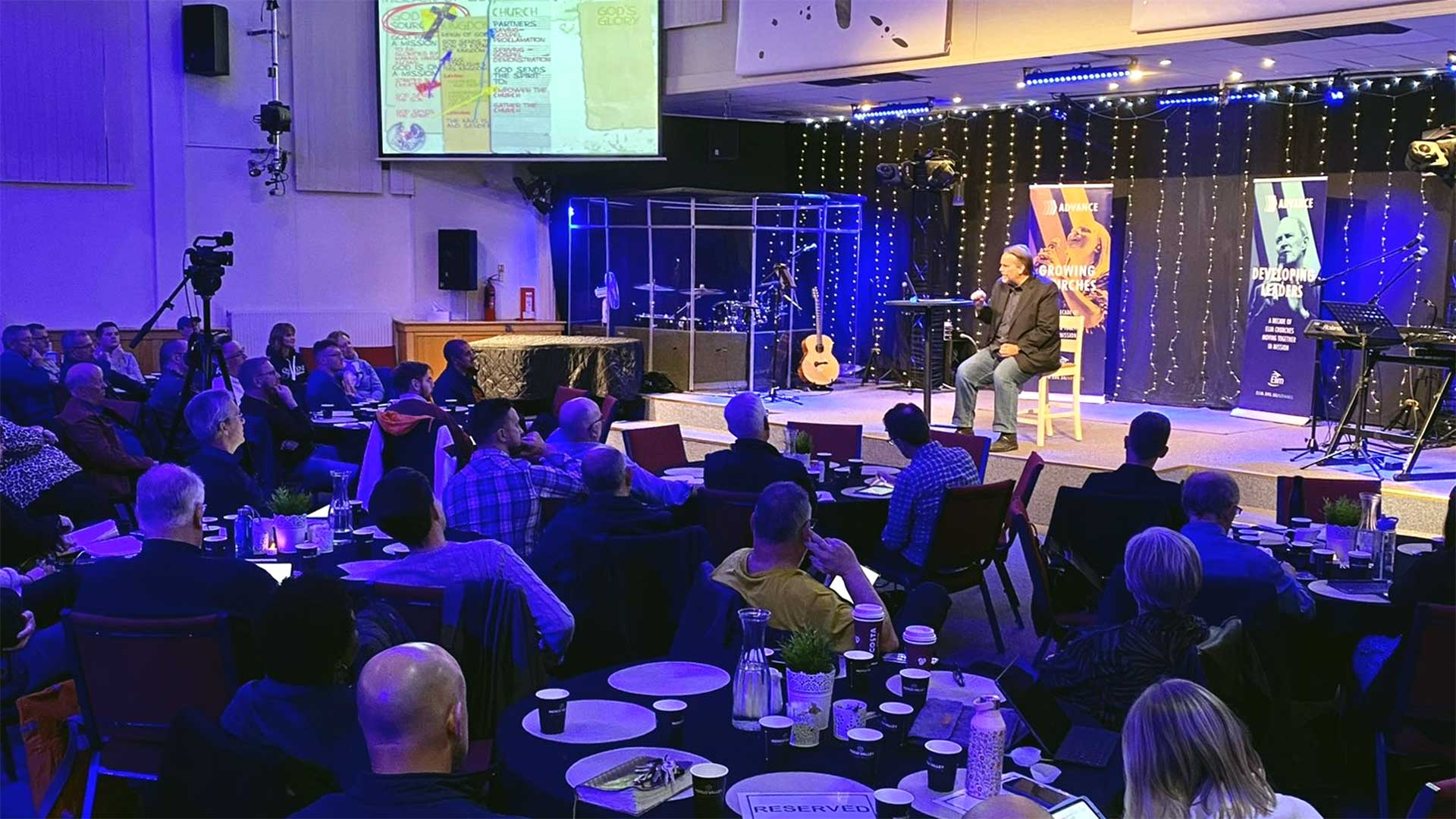
Ed Stetzer
Three encouraging trends I see in the UK’s churches
Ed Stetzer shares some observations and encouraging trends about the church in the UK.
My visits to England have allowed opportunities to interact with Anglicans as well as many from other churches and included preaching at Kensington Temple and the national meeting of the Vineyard Churches. Elim General Superintendent Chris Cartwright asked me to share some observations about the church in the UK.
That can be a dangerous undertaking, as I’m just an observer and a brief one at that—but in my time here, I’ve observed three helpful and encouraging trends I see in the evangelical churches.

1 Relationships are important
First, I noticed how evangelical believers here seek to maintain friendly relationships with people who have a common view of the gospel, even though they have some theologically divergent views. Another way of saying this is I don’t see the level of tribalism common in many denominations and groups in the US.
Maybe it’s because we enjoy greater opulence and opportunities in America as compared to the British context. We have so many Christian organisations and networks, denominations and megachurches, schools, and other ways that hold a level of influence in the culture more than is the case here. Such influence can have the unintentional consequence of focusing more on a given network, organisation, or tradition than on relationships across the body of Christ. Because we can easily forget such blessings, we can tend to focus in more on our disagreements rather than things we hold in common.
For example, think of the phrase ‘together for the gospel’. Believers here find it easier to say, “You know, we disagree with these people on some things, but we’re going to continue to see them as gospel partners and work together.” But in the US, when you say ‘together for the gospel,’ we think of a specific group of Reformed evangelicals with the title Together for the Gospel or T4G.
We don’t think first in terms of believers in general who are called together for the gospel. ‘Together for the gospel’ in the UK seems to mean anyone who has a common view of salvation, the need of men and women to trust and follow Jesus, and that they relate to some degree. That doesn’t mean being together on everything in every way, but to some degree, they value modelling togetherness. No doubt a part of this is because when there are fewer believers here, you can’t afford to be as tribal as we are in the US.
2 Clearer focus on mission
Second, mission in the UK seems to be more of a clear priority. There is a greater awareness that churches sit in a mission field and that must be their focus. I’m still trying to persuade American evangelicals of the need to focus more on mission in their given context; here it seems that people in the churches I’ve been in and believers I’ve interacted with more naturally think that way.
To be clear, the churches I’ve been to are not representative of all churches in the British Isles. But it’s been encouraging to see that every church I’ve seen desires to engage their community and serve others in Jesus’ name.
They don’t see as much of a division between showing and sharing the gospel. The American church tends to divide serving in Jesus’ name from proclaiming the gospel, often posturing them in competition with one another. What people here say is, “Of course we serve and make a difference in our community.” They don’t see that as a threat to evangelism. So, the mission among the believers seems to be engaged at a higher level.
3 A desire for more and better evangelism
The third thing I would say is that there is an appropriate angst about evangelism.
Why would I say that is encouraging? Because recognising a problem is the first step to resolving it. I’m not sure the American church predominantly sees how much an evangelism lull there is across the country.
In the UK people want to learn more about evangelism. They’re seeking diligently to figure out ways to engage people for Jesus in a post-Christendom setting. People are asking, “Who does that well? What does that ultimately look like now?” People are searching to find how evangelism is best practiced in this secularised culture.
An interesting facet of this relates to the coronation of King Charles III. I’ve been fascinated to observe the debate happening after the death of Her Majesty the Queen. Is King Charles the defender of ‘faiths’, or defender of ‘the Faith’? He originally said ‘defender of faiths’ in a controversial statement in 1994, and then in 2015 clarified that he meant ‘the Faith’, though he would protect other faiths as well. The Archbishop says, “the Faith,” referring to Christianity.
This question paints a picture of the moment we are in with the transition from the Queen to the new King. The final Christmas message by the late Queen Elizabeth so clearly spoke of Christ that we could all say ‘Amen’ to it. But my friend Trevin Wax made the point in his tweet at her death where he said: “The death of the queen feels weighty because it marks the passing not of a woman but of a world.” And what does it look like in the different world in which we find ourselves?
Communicating is crucial
When I look at some of the bright spots of evangelicalism in the UK, I am more encouraged through my visits. I needed what I’ve found here, because frankly, American evangelicalism has been a bit depressing lately. I find myself very much aligned with the kind of thinking among many of the evangelicals I see here—and plan to be here in the UK more often.
I don’t do future predictions too well, but as Western culture continues to move in a less faith-friendly direction, how effectively we communicate the gospel will be crucial.
Thomas Cranmer, former Archbishop of Canterbury, author of The Book of Common Prayer among other titles, and martyr for the faith, offered four brief exhortations before being burned at the stake:
-
Care less for this world and more for the next.
-
Obey sovereigns out of the fear of God.
-
Do good to all people.
-
Be concerned for the poor.

Ed Stetzer has decades of experience as a scholar, researcher, pastor, media professional and is dean of Talbot School of Theology. He has planted, revitalized, and pastored churches, trained pastors and church planters on six continents, and has written hundreds of articles and a dozen books.
This article first appeared in the July 2023 edition of Direction Magazine. For further details, please click here.
Enjoy this article? Don't forget to share